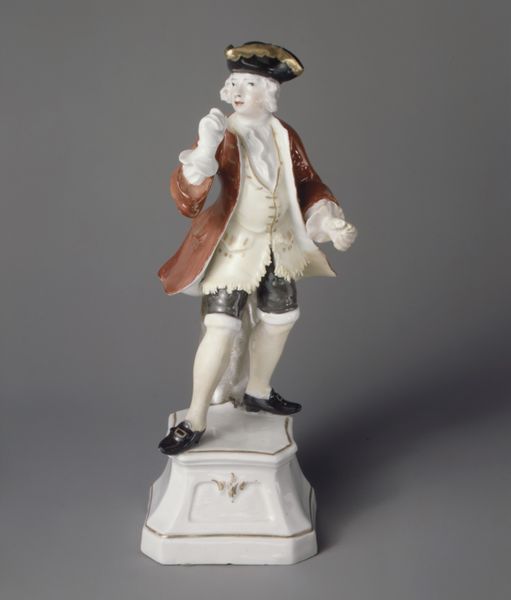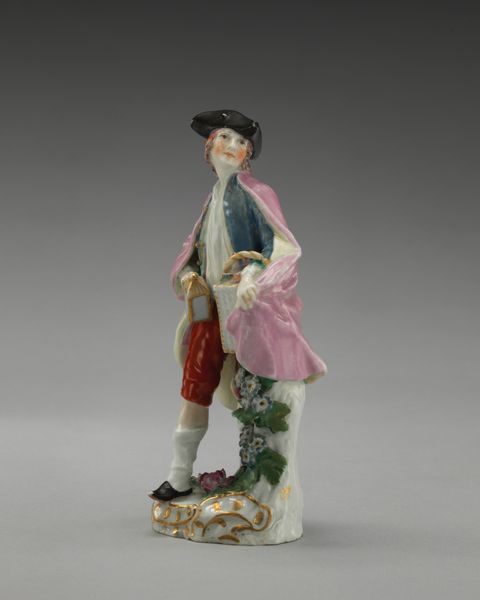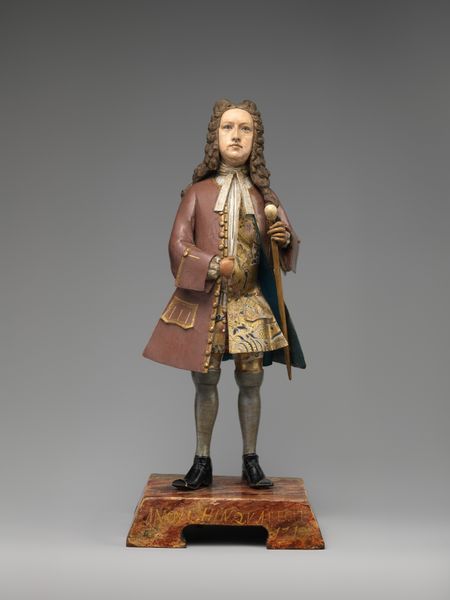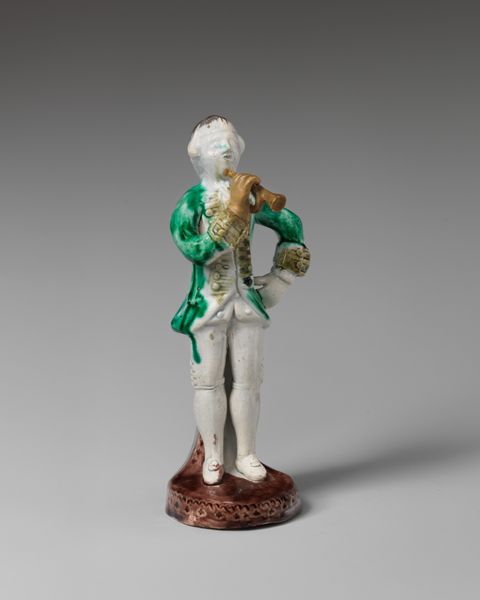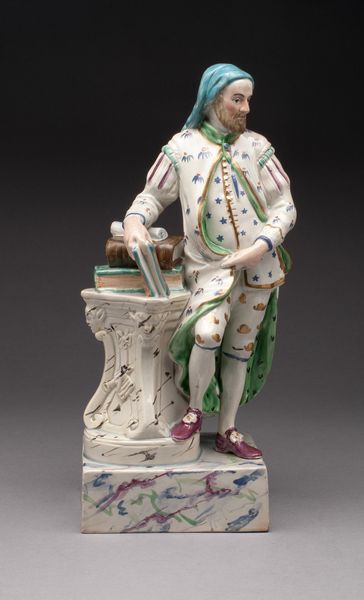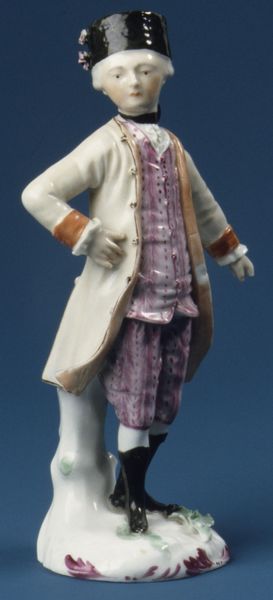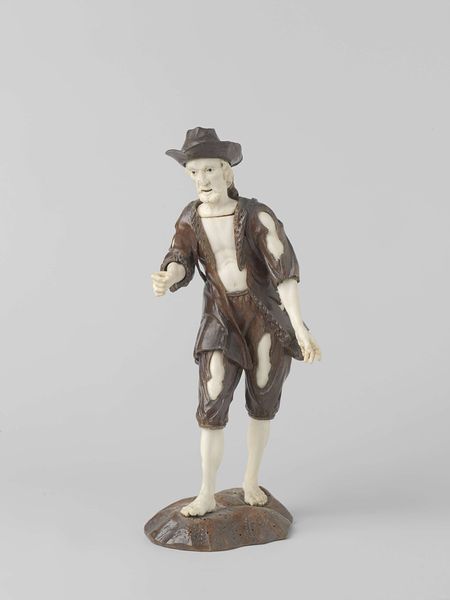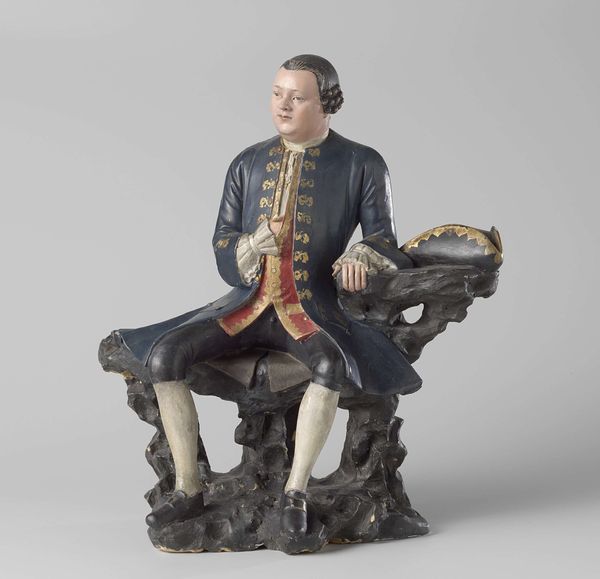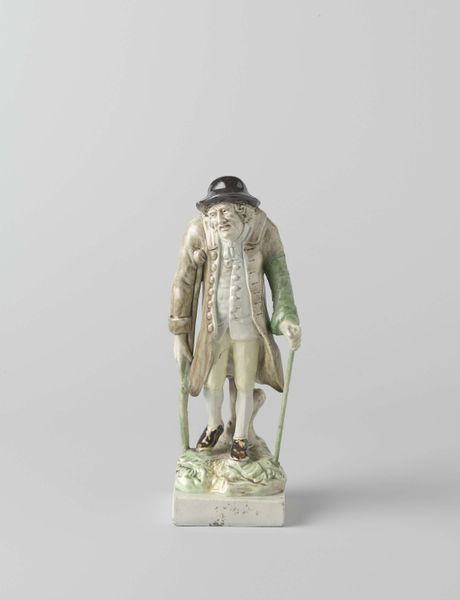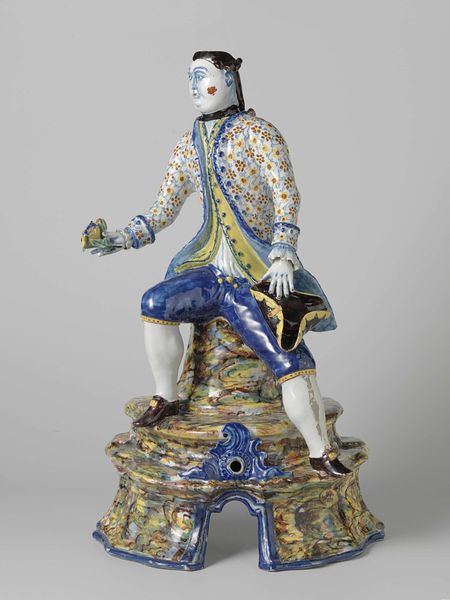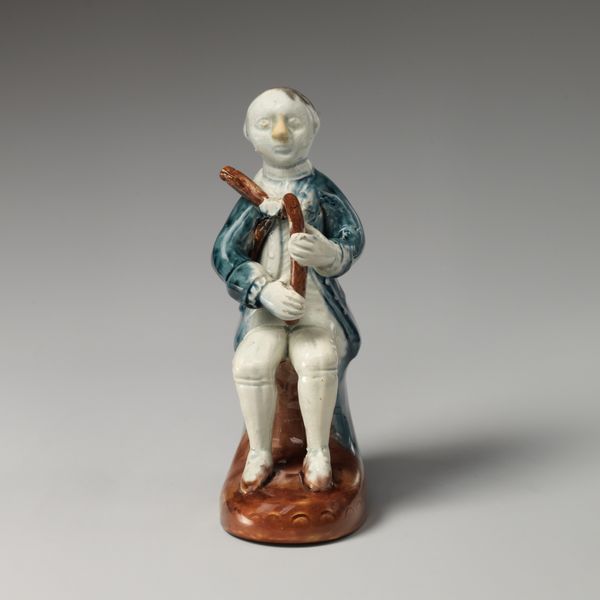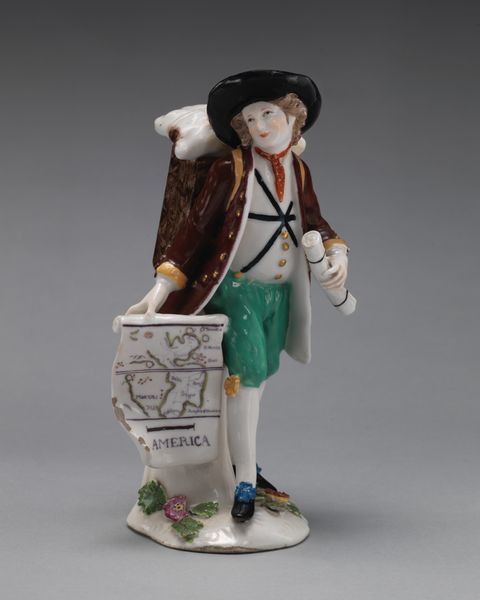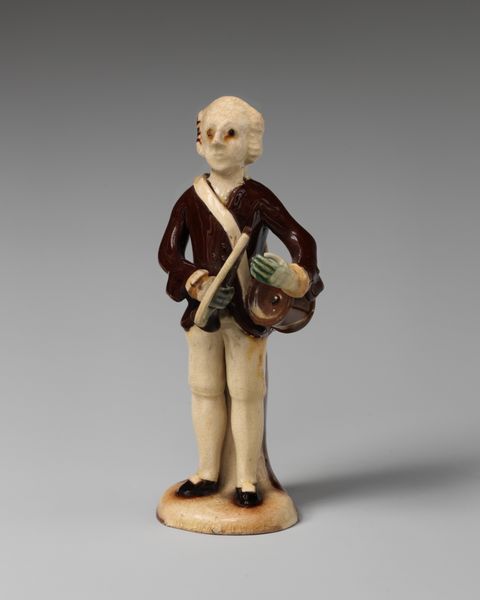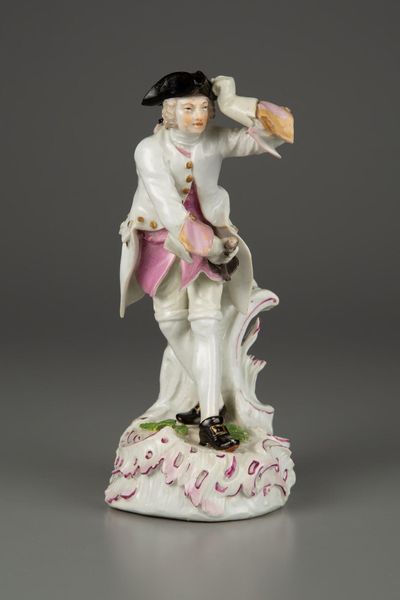
ceramic, porcelain, sculpture
portrait
ceramic
porcelain
figuration
sculpture
men
decorative-art
rococo
Dimensions: Height: 12 in. (30.5 cm)
Copyright: Public Domain
Editor: Here we have "Freemason," a porcelain sculpture made by Meissen Manufactory sometime between 1739 and 1749. It’s quite small, almost a figurine, and the details in the man’s clothing are incredibly delicate. What symbols and imagery stand out to you in this work? Curator: The entire piece pulses with symbolism. Consider the column the figure leans upon. What does a column traditionally represent? It speaks of strength, stability, and support, key tenets, no doubt, for this particular Mason. The apron, of course, is instantly recognizable. Editor: The apron looks very pristine. Almost ornamental. Curator: Precisely. And this detail invites further exploration. What do you notice about its depiction, its state of cleanliness, the way it’s presented? It's more than mere protection; it signifies purity and dedication to the craft, presented with rococo elegance, quite distinct from the stonecutter’s utilitarian garment. It's romanticizing an image, connecting back to broader ideals. Do you see how the very choice of material, the porcelain, adds another layer to its symbolic weight? Editor: Because it's precious, not something you would associate with manual labor? Curator: Exactly. It transforms the artisan into a gentleman of leisure and knowledge. A figurine representing the aspirations and philosophies of the Enlightenment itself. Editor: It’s interesting how an object like this becomes a vessel for so many meanings. It definitely sheds new light on how people of that time might have perceived freemasonry and its values. Curator: Indeed, and by deciphering these symbols, we gain access to the cultural memory encoded within the artwork, and how that order saw themselves.
Comments
No comments
Be the first to comment and join the conversation on the ultimate creative platform.
